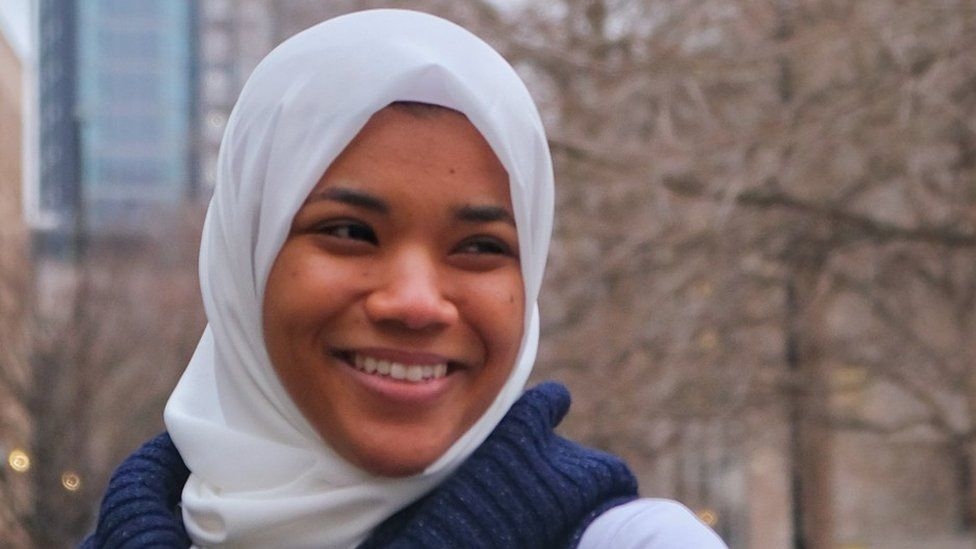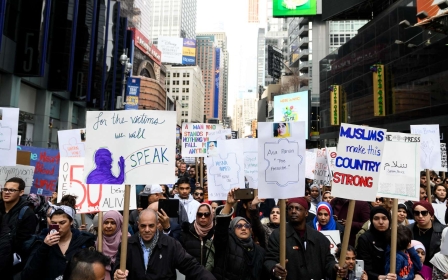UK: NUS president Shaima Dallali sacked over antisemitism allegations

The UK's National Union of Students said on Tuesday it had dismissed its elected president, Shaima Dallali, following an investigation into allegations of antisemitism.
Dallali, a Black Muslim woman of Tunisian descent, was elected in March to lead the national student body, although she had not taken up the post after being suspended, pending the investigation. She is the first president to be dismissed in the NUS's 100-year history.
“Following the independent KC-led investigation into allegations of antisemitism, specifically into the then President-elect under the NUS Code of Conduct, an independent panel has found that significant breaches of NUS policies have taken place,” the NUS said in a statement.
“As per this finding, we have terminated the President's contract."
The NUS said the decision could be subject to an appeal, but defended the process which had led to Dallali's dismissal.
New MEE newsletter: Jerusalem Dispatch
Sign up to get the latest insights and analysis on Israel-Palestine, alongside Turkey Unpacked and other MEE newsletters
"We can assure any interested parties that this process has been incredibly robust and that we can and must trust in the outcome.
"We know that there will be strong feelings around this issue so we urge people to respect this process and to refrain from taking part in or perpetuating any abuse, particularly online, towards anyone involved in this matter.
The NUS said Chloe Field, vice-president of higher education, would step up as acting chair of the NUS board and serve as president of the organisation in Dallali’s absence.
'Unacceptable'
Writing on Twitter, Dallali said she found out she had been sacked on the social media platform, and described that as "unacceptable".
“On the first day of Islamophobia Awareness Month, I find out I have been dismissed through Twitter,” Dallali wrote.
“That is unacceptable.”
After her election, Dallali was placed under investigation following complaints of antisemitism and homophobia relating to a number of tweets dating back to 2012.
Dallali apologised for the tweets and welcomed the investigation into her actions.
In September, the Federation of Student Islamic Societies (FOSIS) said it was dismayed at Dallali’s treatment and said it would encourage its members to launch disaffiliation campaigns against the NUS.
Following her election, Dallali told the Guardian that she feared for her safety after receiving a torrent of online abuse and threats.
Before she was elected NUS president, Dallali served as president at City University in London.
Dallali was then elected to serve as NUS president at the body's last national conference, which saw hundreds of delegates from across the UK vote for her.
She was due to start her new role in July and serve in that position for a two-year term.
In May, following Dallali's election, the UK government's education minister said it would sever ties to the NUS over antisemitism claims and replace it with "alternative" student representation.
In a statement on Tuesday, the Muslim Council of Britain, said Dallali's dismissal was "deeply troubling and raises questions on proper due process".
The umbrella body, which represents hundreds of Muslim organisations, said it had written to the NUS in July with concerns about Islamophobia but had not received a response.
It said Dallali had been subjected to a "deluge of Islamophobic abuse".
"Many Muslim students fear the Islamophobia they face on campus. This decision will only heighten those fears and raise questions about their place within NUS. They are owed an explanation."
Middle East Eye delivers independent and unrivalled coverage and analysis of the Middle East, North Africa and beyond. To learn more about republishing this content and the associated fees, please fill out this form. More about MEE can be found here.





